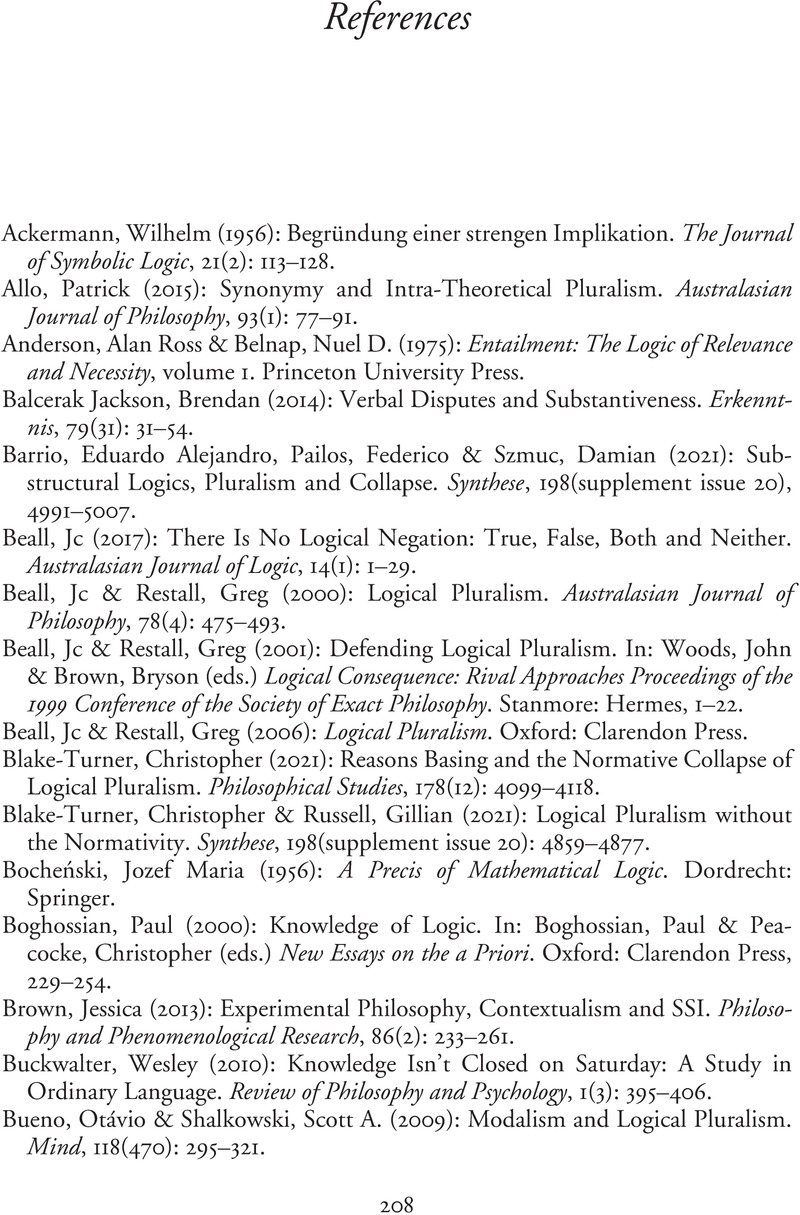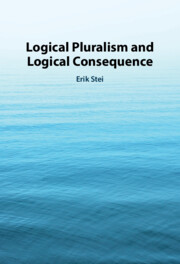Book contents
- Frontmatter
- Contents
- Figures
- Preface
- Chapter 1 Logical Pluralism Introduced
- Chapter 2 What Does It Mean for a Logic to Be Correct?
- Chapter 3 Three Dimensions of Plurality
- Chapter 4 The Cardinality of Logical Consequence
- Chapter 5 Domain Dependence
- Chapter 6 Pluralities of Meanings
- Chapter 7 Pluralism and Disagreement
- Chapter 8 Normativity and Collapse
- Chapter 9 Closing Remarks
- References
- Index
- References
References
Published online by Cambridge University Press: 23 March 2023
- Frontmatter
- Contents
- Figures
- Preface
- Chapter 1 Logical Pluralism Introduced
- Chapter 2 What Does It Mean for a Logic to Be Correct?
- Chapter 3 Three Dimensions of Plurality
- Chapter 4 The Cardinality of Logical Consequence
- Chapter 5 Domain Dependence
- Chapter 6 Pluralities of Meanings
- Chapter 7 Pluralism and Disagreement
- Chapter 8 Normativity and Collapse
- Chapter 9 Closing Remarks
- References
- Index
- References
Summary

- Type
- Chapter
- Information
- Logical Pluralism and Logical Consequence , pp. 208 - 217Publisher: Cambridge University PressPrint publication year: 2023



